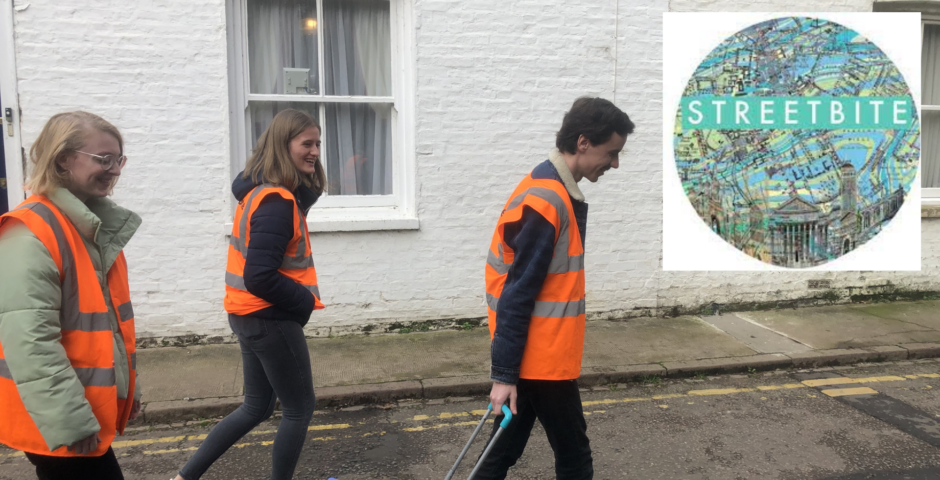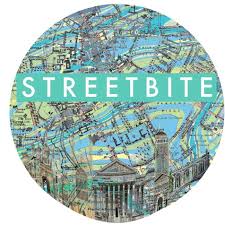
‘We shouldn’t be complacent’: Streetbite Cambridge on homelessness in a pandemic
‘Are we going to go back to the old normal, or use Covid to see what can be changed in society?’
CN: Discussion of homelessness and Covid-19.
Last week, The Tab Cambridge spoke to Paul Heller, third year Philosophy student at Peterhouse, and President at Streetbite Cambridge – a student-run organisation that helps the homeless community in Cambridge – about homelessness in Cambridge over lockdown, the charities that are getting involved, and what you can do to help out even if you’re stuck at home this term.

The Streetbite logo was designed by Cambridge student Lauren Pencil (Photo credit: Streetbite Cambridge via Facebook)
“Through volunteering you’re going to have a really great time and meet some really great people”
On a regular day, Streetbite might send out a few students every lunchtime and evening to walk routes around Cambridge, providing warm food and drink as well as a chat to those in need, but as a result of Covid restrictions (plus the fact that we’re in lockdown and many students aren’t in Cambridge for Lent term), Streetbite’s more active work has had to take a backseat for the meantime.
Paul said that “through volunteering, you’re going to have a really great time and meet some really great people,” but because of the pandemic, Streetbite are instead working with the larger community of homelessness charities in Cambridge to ensure that their resources are working as cohesively and efficiently as possible.
Cambridge is lucky to have many organisations working to tackle homelessness, including the Cambridge Homeless Outreach Programme (or CHOP), Wintercomfort for the Homeless, Jimmy’s, the Severe Weather Emergency Provision, and the Cambridge Churches Homeless Project among others.
Paul added that these charities are now working together under the ‘It Takes a City’ partnership, who, over the past year, have worked to ensure the safety of the homeless community in Cambridge during the pandemic.

Paul describes how Streetbite’s volunteering work has had to stop during the pandemic (Photo credit: Paul Heller)
“It’s a really exciting time to be working in this area right now, and I think there’s a real opportunity for change”
The pandemic has provided an opportunity to move people into more permanent housing. Paul estimates that there are about 80 rough sleepers in central Cambridge, and a majority of them were housed in hotels at the beginning of the pandemic.
They were then moved into Master’s House, a building owned by a Local Educational Authority that provides shelter, utilities, warm food cooked by Wintercomfort for the Homeless, and staff experienced in empowering people living on the street out into their next steps.
Paul describes how this was a beacon of hope for people who had been living on the streets: “It’s a really exciting time to be working in this area right now, and I think there’s a real opportunity for change.”
He continues: “Are we going to go back to the old normal, or use Covid to see what can be changed in society?”, stressing the importance of using this opportunity to move more of Cambridge’s homeless into more permanent housing.
Despite these measures, homelessness in Cambridge is still a very visible problem. If students are approached by someone living on the streets and don’t feel comfortable giving money, it’s a good idea to direct them to Wintercomfort for the Homeless (at Overstream House, between Jesus Green and Midsummer Common), as it’ll help the person to seek the help they need and also raise awareness of the support that Wintercomfort offers.
“We shouldn’t be complacent, but at the same time amazing services like SWEP exist and there are people out there making sure people get inside when it gets really cold”
As for Streetbite themselves, although under ‘normal’ circumstances students would be able to join Streetbite on their shifts, as this is currently on hold, Paul asks students to keep an eye on the Streetbite Facebook page for updates about future volunteering and events and to also anticipate a collaboration with Reverend Jon Canessa, a pastor who works with people living on the streets, on a talk discussing homelessness.
Paul highlights the Reverend as someone in Cambridge doing great work to help the homeless community and emphasises the network of organisations in Cambridge working together to ensure their resources are being used to help the most people possible. He says that the pandemic has given these organisations the opportunity to reconsider and restructure, in order to avoid duplicating work and get people the help they need.
So how can I get involved?
Until shifts start back up again, students can donate to Wintercomfort for the Homeless or other organisations such as Jimmy’s and SWEP. SWEP (or Severe Weather Emergency Provision) is an initiative run by Cambridge City Council to provide accommodation for people living on the streets in cold weather. Paul describes how critical services like these are: “We shouldn’t be complacent, but at the same time amazing services like SWEP exist and there are people out there making sure people get inside when it gets really cold.”
For students who aren’t in Cambridge this term who would like to get involved in their local areas, a simple Google can bring up charities that work with homeless people near you, and Paul also mentions that there are often local group chats and Facebook pages that can give you a route into working directly with people living on the streets in your hometowns.
Streetbite Cambridge can be found on Facebook, and here are links to Wintercomfort for the Homeless and CHOP.
Featured image credit: Paul Heller and Lauren Pencil
Related articles recommended by this author:
• The Bigger Issue: An interview about homelessness in the second lockdown
• Week three news column: Rainbow ravens, silent majorities and disappearing May Weeks









































